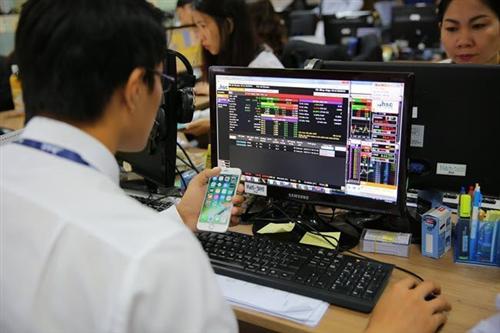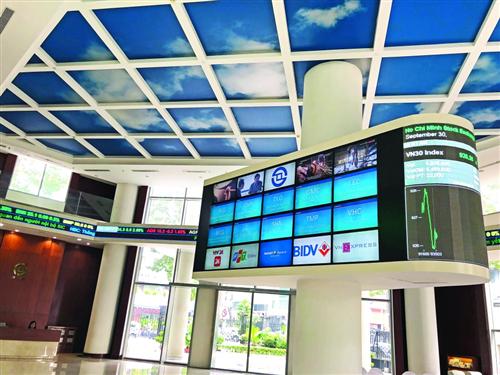Foreign investors look forward to Vietnam’s imminent IPOs in 2020
Foreign investors look forward to Vietnam’s imminent IPOs in 2020
Nearly 100 Vietnamese companies will need to hit the road for share auctions by the end of 2020 to meet the government’s target of privatizing state firms.
Many foreign potential investors are waiting for the initial public offering (IPO) of Vietnamese high-profile state-owned enterprises (SOEs) that are named in the country’s list for privatization this year.

|
Representatives of a Japanese group, which declined to be named, said that they are very interested in the privatization roadmap of two SOEs: Dong Nai Food Industry Corporation (Dofico) and Khanh Viet Corporation (Khatoco).
Dofico, which was set up in 2005, is one of large and effective multi-industry firms of the southern province of Dong Nai. The firm has an average turnover of some VND2 trillion (US$86.95 million) and the Japanese investor expected that its business performance results could take a leap if having financial aids as well as governance expertise and technologies from foreign investors.
With strengths in some business segments that are the same with Dofico, the Japanese investor is interested and expected to buy a large volume of Dofico’s shares.
Similarly, the investor is also paying great attention to Khatoco, which is one of the largest firms in the central region and operates in packaging, paper and cigarette production industries.
According to experts, though not being able to hold the dominant shares of the Vietnamese firms as the State sets to own 51- 65% of the firms’ charter capital, the Japanese investor is still keen on the firms as it wants to take advantages of the firms to deeply penetrate the domestic market, which has high potentials with a population of 100 million and a good geographic position in Southeast Asia.
To enter the Vietnamese market, many foreign investors are considering investing in local fruitful SOEs that have been approved for privatization.
Attractive list
Nearly 100 Vietnamese companies will need to hit the road for share auctions by the end of 2020 to meet the government’s target of privatizing state firms.
In the list of nearly 100 firms to be privatized this year, there were many notable names for investors, such as Agribank, MobiFone, VNPT, SJC Jewelry, Ha Dong Clean Water, Thong Nhat Hanoi Park, Ben Thanh Saigon Corporation and Hanoi Tourism Corporation.
Vu Huu Dien, fund manager at Dragon Capital, hoped for a reasonable outcome from the privatization pipeline, due to many high-profile names in the list.
Max Loh, EY’s ASEAN IPO leader, said that going public is still very much the trend for Vietnamese companies. The stock market capitalization presently accounts for almost 80% of the country’s GDP and forecast to grow to 100% of GDP by 2020.
However, to boost up the privatization, experts suggested the government to streamline current legal regulations, especially those in valuating state assets including land funds.
Phan Van Ha, general director of the Vietnam Valuation IVC JSC, said conflicting and overlapping legal documents on land use rights certificates are the cause of delayed privatization plans.
SOEs need to acquire provincial confirmation of their land use before finalizing privatization plans. However, the process may take months and often exceeds the regulated time period for SOE privatization, so both SOEs and appraisers must re-do the reports.
In some cases, land use right certificates are not counted into the firms’ valuations, making it more difficult for competent agencies to evaluate the firms.
To avoid a similar case in the future, whether to include a firm’s land use right in the valuation report or not must be legalized, Ha said.
According to Ngo Tri Long, former director of the Ministry of Finance’s Price and Market Research Institute, land use right is among the decisive factors that make SOEs valuable to investors, especially local ones. If the issues related to land use right aren’t resolved soon, SOEs’ privatization plans will be delayed and it could mean more losses for the state budget.























